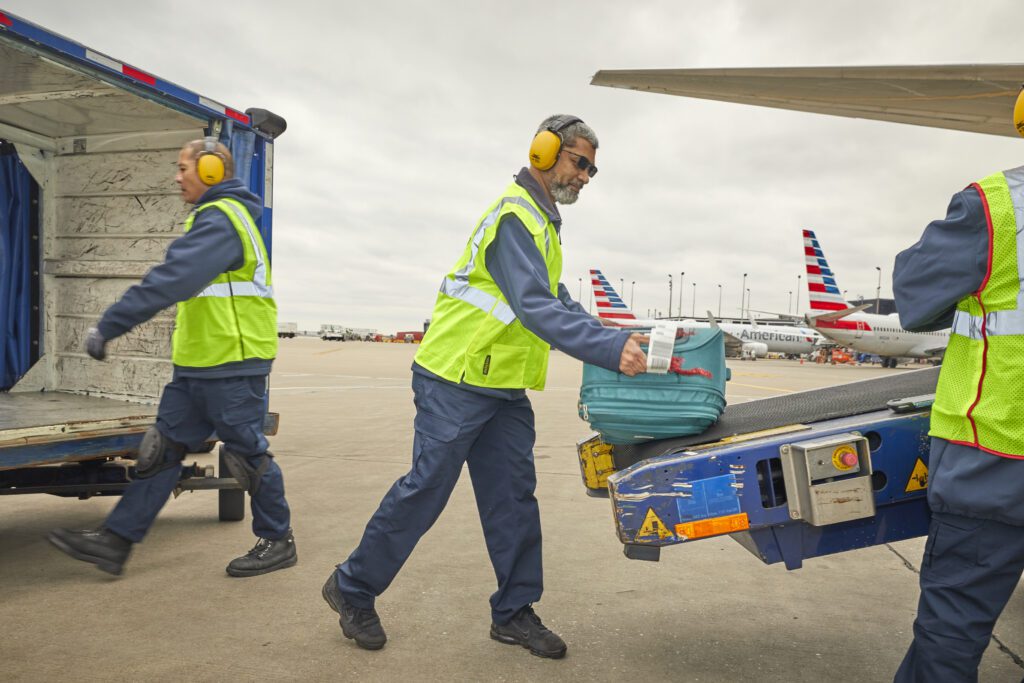Skift Take
Airlines are raising baggage fees to offset rising costs and cooling airfare inflation. But these price hikes may also be part of a strategy to incentivize more passengers to sign up for their frequent flyer programs and co-branded credit cards.
Checking in a bag is becoming an increasingly expensive endeavor.
At American and United, the first checked in bag now costs $40 at the airport. JetBlue quietly increased its baggage fees earlier in February to $45 for checking in the first bag less than 24 hours before departure. And Frontier Airlines charges $75 for luggage that weighs anywhere between 41 and 50 pounds.
Delta so far has kept its baggage fees at $30 for the first bag, and Southwest is the only major carrier that doesn’t charge passengers for the first two checked-in items.
What Is Fueling the Price Increases?
Blame it on inflation and rising operating costs.
Nearly every airline that upped baggage fees said inflation, higher fuel costs and operating costs led to the price increases.
Many airlines saw record revenues and profits post-pandemic. But that growth may be waning as airfare inflation cools and costs, such as new labor contracts, continue to rise. Increasing bag fees is just one strategy airlines are turning to maintain those revenues.
JetBlue said it increased baggage fees as part of its strategy to return to profitability after suffering the losses of the Northeast Alliance and its failed merger with Spirit Airlines.
“The cost of doing business has gone up significantly due to increased wages, higher fuel costs, and other inflationary pressure, and we remain unprofitable since COVID,” JetBlue said in a statement. “While we don’t like increasing fees, it’s one step we are taking to return our company back to profitability and cover the increased costs of transporting bags.”


American raised its bag fees for the first time in nearly five years, using a two-tiered fee strategy similar to that of United. For those who check in a bag at the airport, it’ll cost $40. The customers who check in bags online will only pay $35.
The changes at American were part of a wider overhaul of its booking process, which included only allowing travelers to earn frequent flyer miles on flights booked directly with the carrier or through certain online travel agencies.
“American Airlines routinely evaluates our ancillary offerings as part of the normal course of business,” a company spokesperson said. “Due to inflation, fuel costs and increased operating costs, the new fees for first and second checked bags on all American Airlines routes within the U.S., including Alaska, Hawaii, Puerto Rico and the U.S. Virgin Islands.”
But these increases are not universal — American is lowering fees for certain overweight bags. For items that weigh anywhere between 50 to 53 pounds, customers will pay an extra $30 instead of the previous $100 fee.
United also increased baggage fees for the first time in four years by $5. Like American, bags checked in at the airport will cost $40; luggage checked in online is $35.
A Ploy to Increase Co-Branded Credit Card Sign-Ups?
Another reason airlines are increasing bag fees may be to boost sign ups for their loyalty programs and co-branded credit cards.
For example, United said travelers that own a United Chase credit card or are members of its MileagePlus program will still be able to check in a bag for free. American said AAdvantage status members and credit card holders can also check in their first bag for free.
Jay Sorensen, the president of airline consulting firm IdeaWorksCompany, said the wavering of bag fees was one of the primary benefits of holding a co-branded credit card.
“If you make bag fees more expensive, you are making the credit card more valuable to hold,” he said. “I think that a good portion of all of the headlines regarding American increasing their bag fees can also be seen as a promotion for taking the co-branded credit card.”
Plus, loyalty programs and credit cards are a lucrative business for airlines. United spun off its MileagePlus loyalty program into a subsidiary valued at $22 billion in 2020. AAdvantage is valued at $24 billion. And in 2023, American generated $5.2 billion in revenue from its co-branded credit card, according to its most recent 10-K filing.
The Battle Against ‘Junk Fees’
Ancillary fees have allowed the airline industry to rake in billions of dollars. U.S. airlines drew in approximately $5.5 billion from baggage fees alone during the first nine months of 2023, a 25% increase compared to the same period in 2019, according to the most recent Department of Transportation data.
These extra costs that are passed down to passengers are also at the center of the Biden Administration’s fight against “junk fees.”
The DOT is expected to release rulemaking against junk fees in March, which will also most likely pertain to baggage fees. A DOT spokesperson said the rule would require airlines to display such fees as “passenger-specific” or “itinerary-specific,” depending on the consumer’s choice.
But it isn’t clear if such a rule would sway airlines to change course.
“I see very little capability on behalf of Congress or the DOT to regulate a la carte fees,” Sorensen said. “So I think the airline industry is looking upon that as not a threat at all.”
